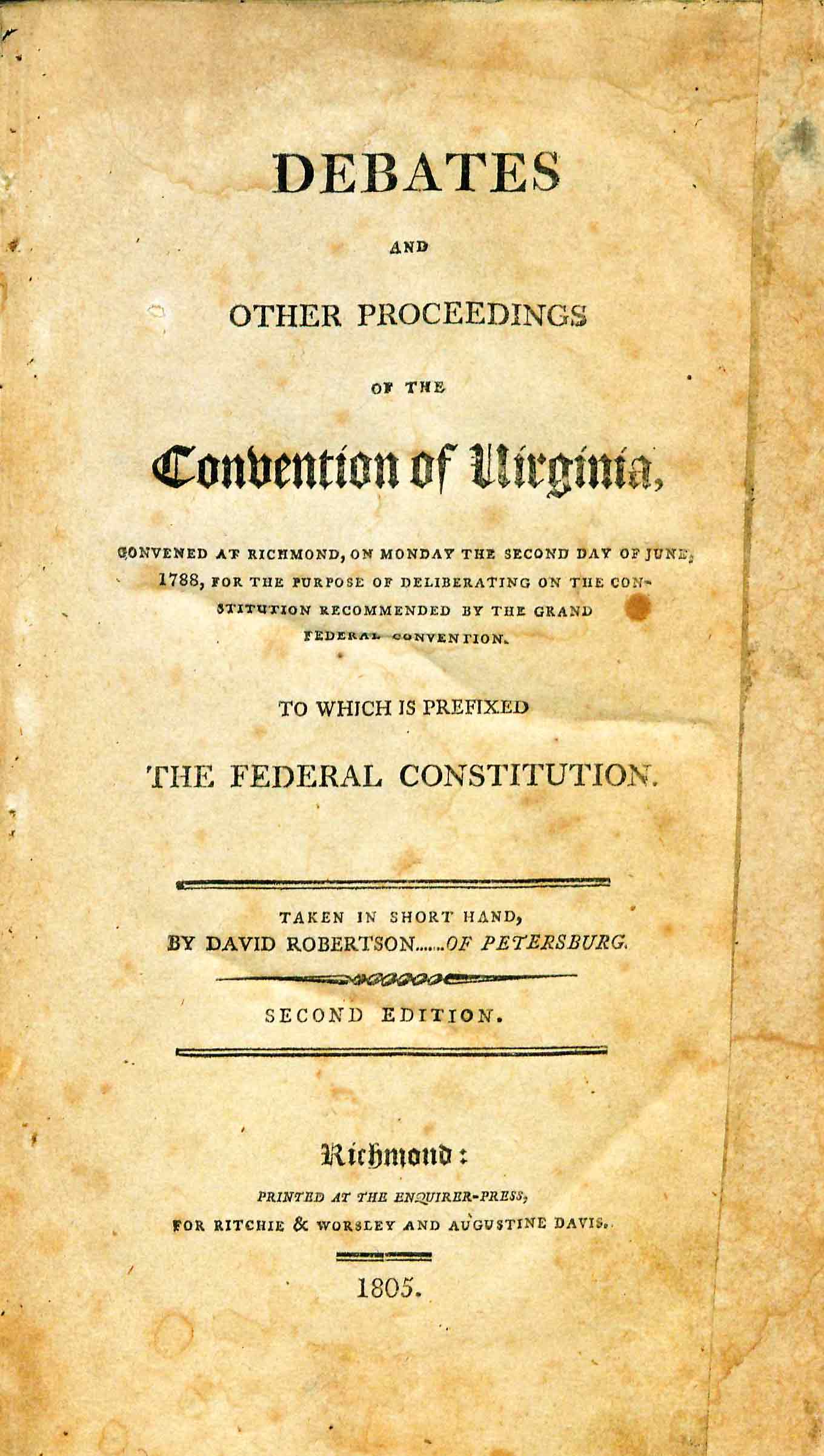Debates and Other Proceedings of the Convention of Virginia
Debates and Other Proceedings of the Convention of Virginia, Convened at Richmond, on Monday the Second Day of June, 1788, for the Purpose of Deliberating on the Constitution Recommended by the Grand Federal Convention. To Which is Prefixed the Federal Constitiution.
| Debates and Other Proceedings of the Convention of Virginia | |
|
Title page from Debates and Other Proceedings of the Convention of Virginia, George Wythe Collection, Wolf Law Library, College of William & Mary. | |
| Author | Virginia |
| Published | Richmond: Printed at the Enquirer-press, for Ritchie & Worsley and Augustine Davis |
| Date | 1805 |
| Edition | Second |
| Language | English |
| Pages | viii, 477 pages. |
| Desc. | (22 cm.) |
In June 1788, one hundred sixty-eight delegates from across Virginia met in Richmond to debate whether or not Virginia would ratify the United States Constitution. The delegates decided to ratify the Constitution on June 25, 1988 by a vote of 89 to 79, making Virginia the tenth state to ratify the Constitution.
At the time, there were two groups in opposition of ratification: Federalists and Antifederalists. The ideological debate between both parties revolved around both the power granted to the federal government in the Constitution as well as the lack of individual rights provided by the Constitution. The Federalists, including James Madison, George Wythe, Edmund Randolph, and John Marshall, were in support of the United States Constitution. Federalists believed that the Articles of Confederation did not provide for a salient government. However, Antifederalists argued that the Constitution granted too much power to the federal government, yet, if ratified, would need to assure for individual liberties. Leading the Antifederalists was Patrick Henry, who was joined by George Mason and James Monroe.
Evidence for Inclusion in Wythe's Library
Description of the Wolf Law Library's copy
View this book in William & Mary's online catalog.
